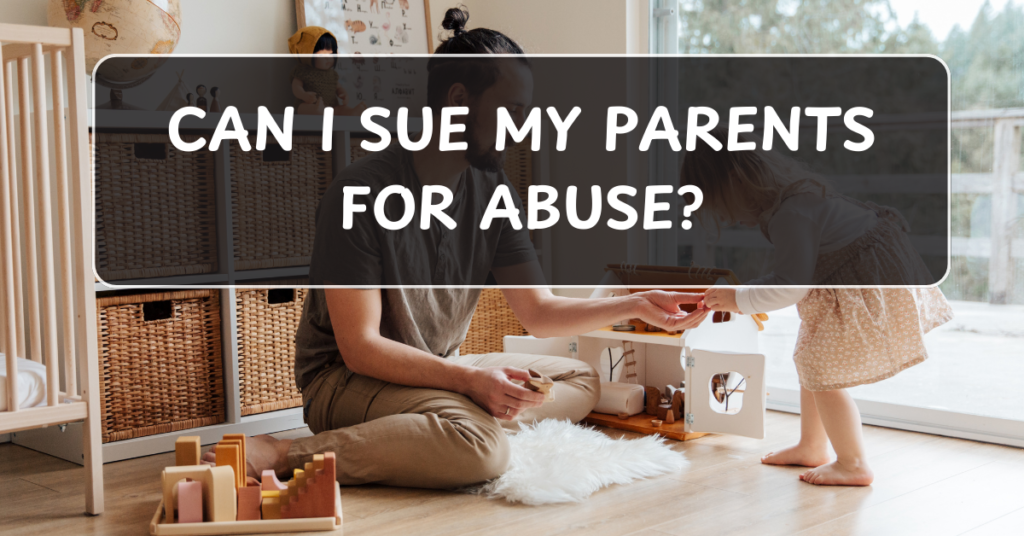
In certain circumstances, it is possible to sue your parents for abuse, but the process can be complex, and the outcomes depend on the type of abuse, the laws in your jurisdiction, and your specific situation.
Legal Options for Suing for Abuse:
- Civil Lawsuit for Damages: In some cases, a person who has experienced abuse may be able to file a civil lawsuit against their parents for damages. This can involve seeking financial compensation for the physical, emotional, or psychological harm caused by the abuse. Civil suits for abuse can include:
- Physical Abuse: If the abuse involved physical harm, such as hitting or assault, you may have grounds for a personal injury lawsuit.
- Emotional or Psychological Abuse: In some jurisdictions, emotional abuse may be grounds for legal action if it can be proven to have caused significant harm.
- Sexual Abuse: In cases of sexual abuse, victims can sue for damages and may be able to pursue criminal charges as well.
- Statutes of Limitations: Keep in mind that each state or country has a statute of limitations that limits how long after the abuse occurs you can file a lawsuit. Some jurisdictions offer longer timeframes for survivors of childhood abuse, allowing victims to sue even decades after the abuse occurred.
- Criminal Charges: While a civil lawsuit seeks compensation, criminal charges are pursued by the state and can result in legal consequences such as imprisonment for the abuser. If your parents’ behavior involved criminal actions, such as physical assault, sexual abuse, or neglect, it may be possible to file criminal charges against them.
Challenges of Suing Parents for Abuse:
- Emotional and Psychological Impact: Suing your parents for abuse can be emotionally taxing and may reopen old wounds. It’s important to consider the emotional impact of taking such a step and to seek support from a therapist or counselor.
- Evidence: Building a case for abuse requires evidence, such as medical records, photographs, testimonies from witnesses, or any documentation that supports your claims. Without clear evidence, it may be difficult to succeed in a lawsuit.
- Financial and Legal Barriers: Legal costs can be high, and pursuing a lawsuit against your parents may present financial challenges. Some legal aid organizations provide free or low-cost services to victims of abuse, so it’s worth exploring those options.
- Family Dynamics: Suing your parents can cause significant strain on family relationships. In some cases, it may affect future interactions or create additional tension. It’s important to consider how this decision will affect your long-term well-being and family relationships.
Alternatives to Suing:
If you’re considering legal action but are unsure about suing your parents directly, there are other steps you can take:
- Report Abuse to Authorities: If you’re still under the care of your parents and are experiencing abuse, you can report the abuse to child protective services (CPS) or law enforcement.
- Seek Therapy and Counseling: Therapy can help you heal from the trauma of abuse and decide what steps to take next. Some therapists specialize in working with survivors of abuse and can guide you through the legal process if you choose to pursue a lawsuit.
- Consider Mediation or Family Therapy: If you want to address the issues within the family without going to court, mediation or family therapy might be helpful in finding a resolution and rebuilding relationships.
Conclusion:
Yes, it is possible to sue your parents for abuse, depending on the nature of the abuse and the legal system in your jurisdiction. However, it’s important to consider the emotional, legal, and financial complexities involved. Consulting with a lawyer who specializes in abuse cases can help clarify your options and provide you with the support you need to make an informed decision.


